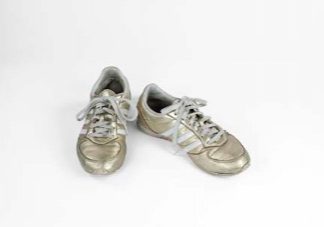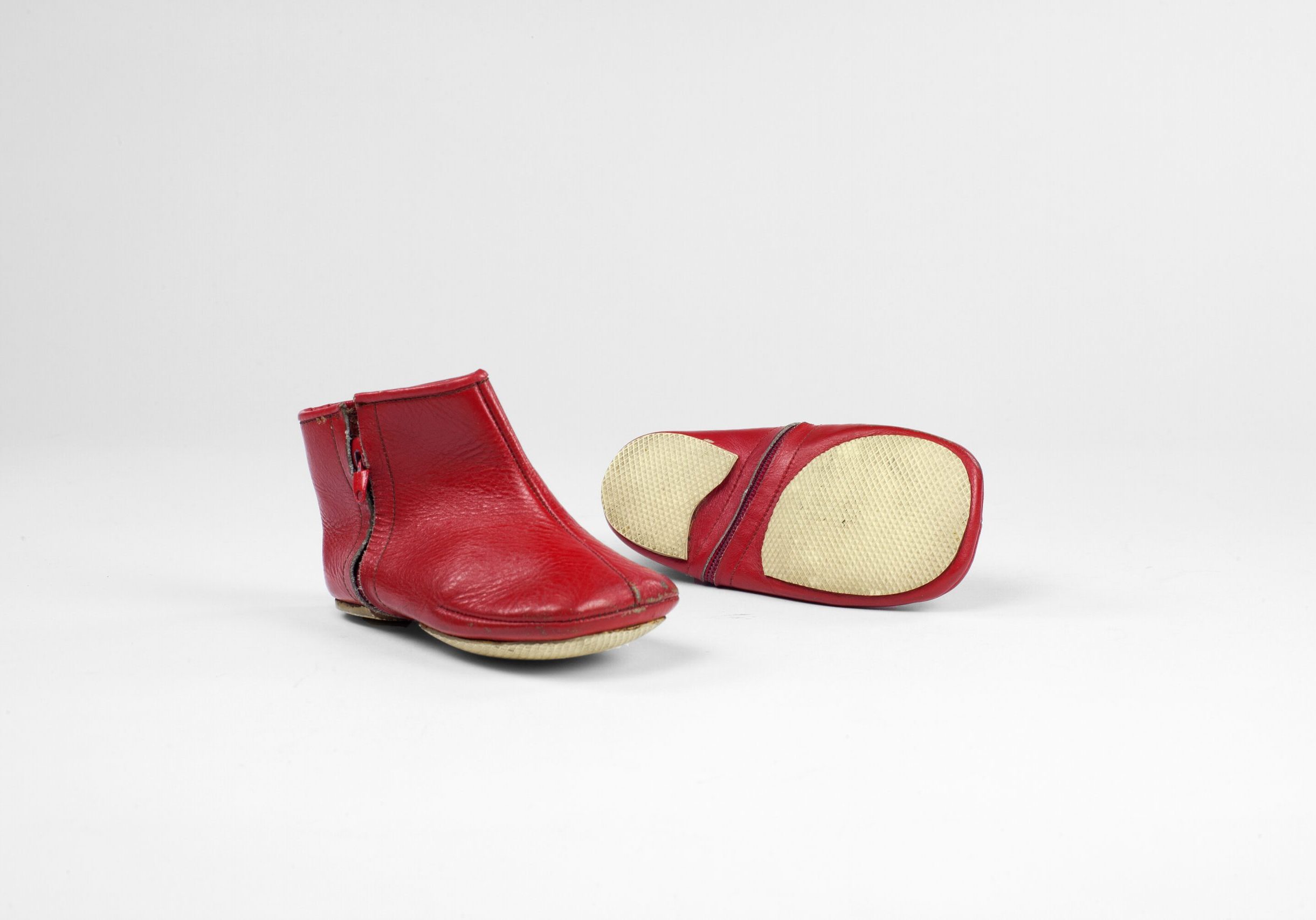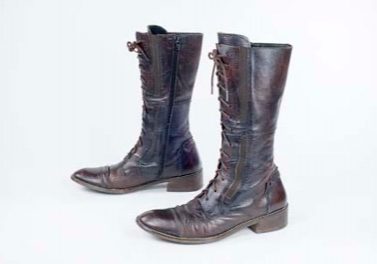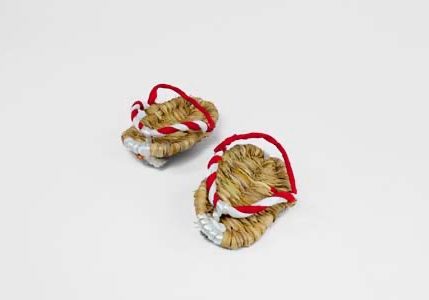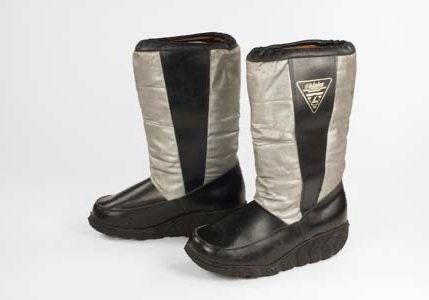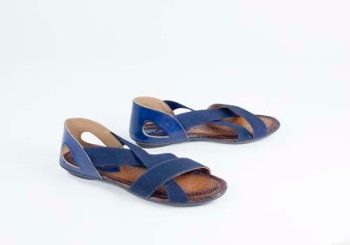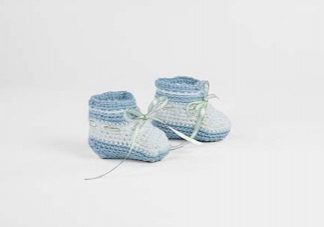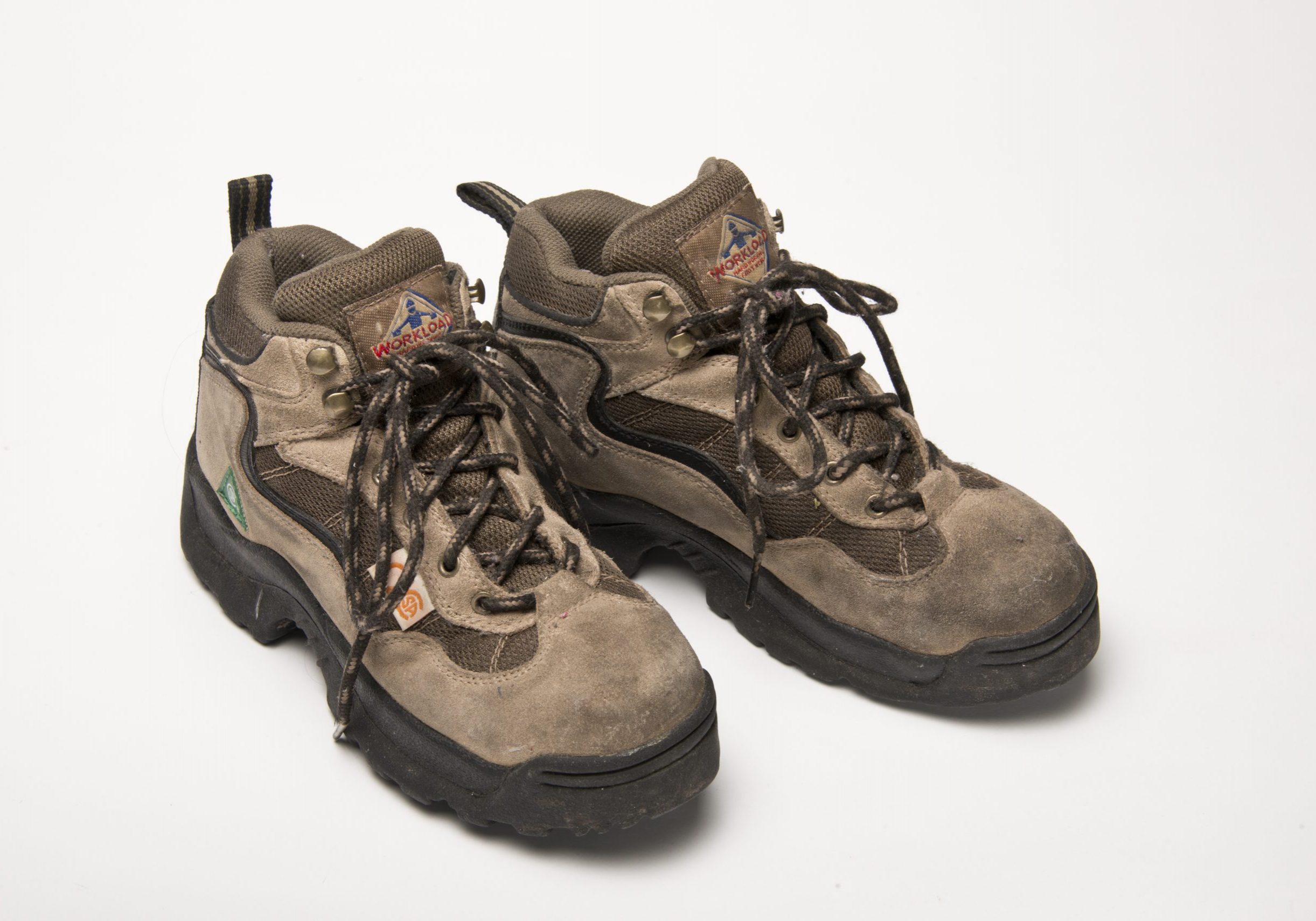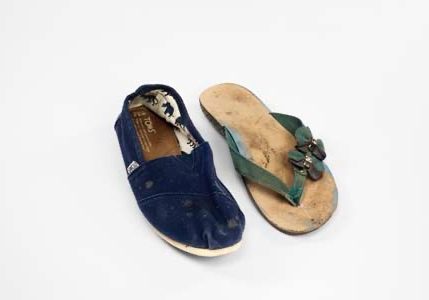Choosing Shoes—and a Groom—in Kathmandu
Sujata Thapa-Bhattarai
Summary:
These bright-red velvet shoes with gold embroidery are traditional Nepali wedding shoes. In Nepal, most girls are married before eighteen and without their consent. But I chose my husband, against the wishes of his family and my own. Even so, I wanted traditional, handmade shoes with woven soles. When I look at my wedding shoes, I feel a mixture of sadness and happiness—sadness that I lost my family’s support, and happiness that I decided to marry and come to Canada to further my education and assert myself.
Story:
One bright afternoon in December 2000, we braved the cold at Ason Bazaar in the heart of old Kathmandu with its narrow, winding streets. My husband-to-be and I held hands to avoid losing each other in the crowd. We reached an old courtyard of shops selling bangles, beads and wedding shoes. We entered a corner shop with a bright red sign saying ‘we are the original shoemakers.’ Red, green, blue, and maroon velvety shoes with gold decorations glittered in the afternoon sun.
The smiling, old shopkeeper asked, “What’s the occasion?”
I proudly replied, “Our wedding.”
He couldn’t believe his ears. “Whose wedding?” he asked.
“Mine.”
I was an unusual customer, there with my husband-to-be, confident and happy. We chatted about what would go with my maroon wedding saree, one that had been handed down in my mother’s family. To match it, I wanted old-fashioned wedding shoes with original handmade woven soles. The shopkeeper was disapproving.
To our families, the announcement of our plan to get married triggered the same disbelief. I called my parents: “Hello, Mom! We’ve started wedding shopping. We got the shoes!” I could almost see the reaction on her face, more somber than the shopkeeper’s.
Mom remained quiet for a while and then, with her stern voice, began, “You know your dad will not approve. You do not understand the norms and customs of our family.” I knew the norms and customs very well. It was not about knowing it was about following them or not.
Getting married within the same caste is one of our family’s norms, but I had chosen a man from the high caste, a Brahmin. My husband’s family was also deeply concerned by their son’s decision to marry a woman from a lower caste. In Nepal, marriage is a contract between two families. It has little to do with personal choice or love. Even today, 79% of Nepali girls are forced to marry by the age of 18 to someone chosen for them by their parents.
Tension brewed at home. Given my family’s political background, my father was concerned about his reputation. At the same time, he was trying to portray himself as a progressive supporter of women’s rights. But it was a shock that his well-educated daughter was too progressive. I can still hear his serious voice and the conciliatory words of my two elder brothers: “Let her decide! Times have changed. We’ve got to move on!”
The wedding cards were distributed, shopping done, temple confirmed, reception venue decided—yet my parents had not decided if they would attend. Rounds of discussion, scrutiny, and scolding ensued. My mom, aunts and uncles tried to convince me to give up. They said, “You will get a good guy in our own caste, a rich guy. You’ll lead a comfortable life if you agree with your dad.” But I was determined. And I needed my family and friends to stand by me.
Finally, the pressure from my two elder brothers worked. My family came to the wedding, showing by their presence that they would embrace the new. However, when my father did not speak to either of us for two years, I realized the loneliness of my journey. I would not share much with my family.
Looking at my red and green wedding shoes reminds me of my ability to make my own choices. Pain and a sense of betrayal mingle with the excitement of leading my life as I choose. I challenged myself again by coming to Toronto for higher education. One needs good, old shoes to make such decisions!
SUJATA THAPA-BHATTARAI is from Nepal. She arrived in Canada in 2011 to pursue her Ph.D. in the Department of Planning at the University of Toronto.
Read Other Stories from this Author
My Mother's Farmer Shoes
The cobbler made the sturdy shoes in which Sujata Thapa’s mother farms, cleans the house, cooks, takes care of her in-laws...
